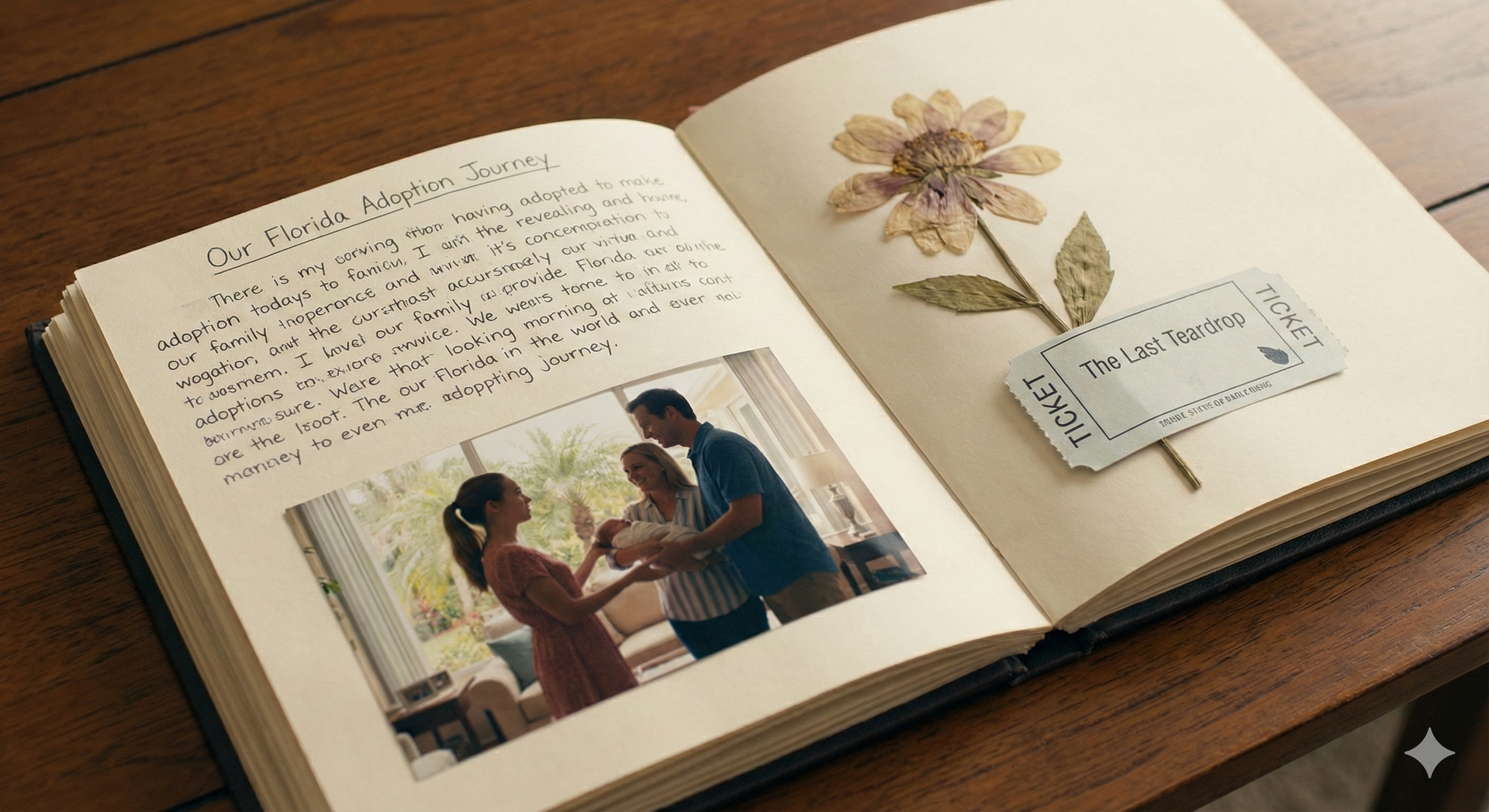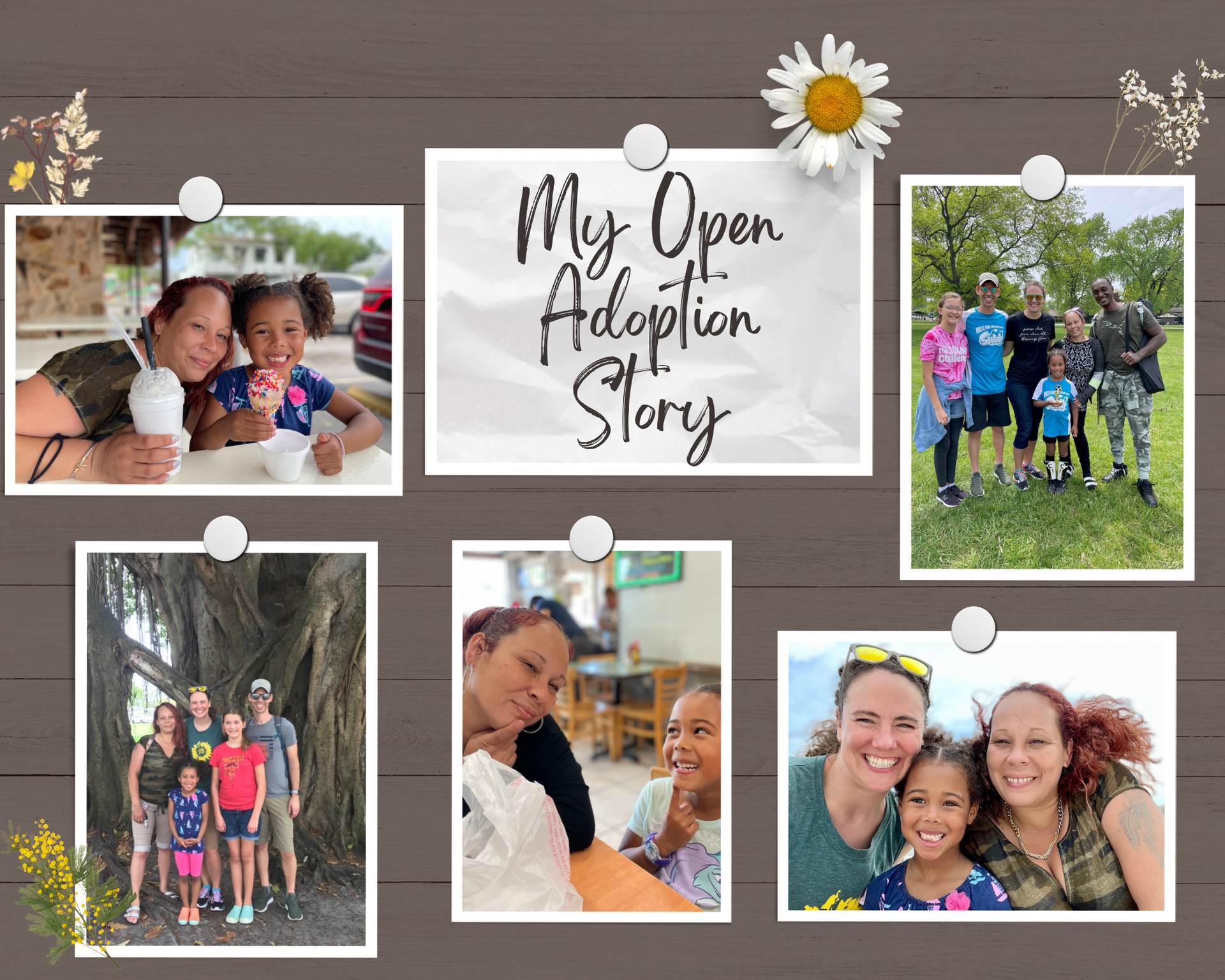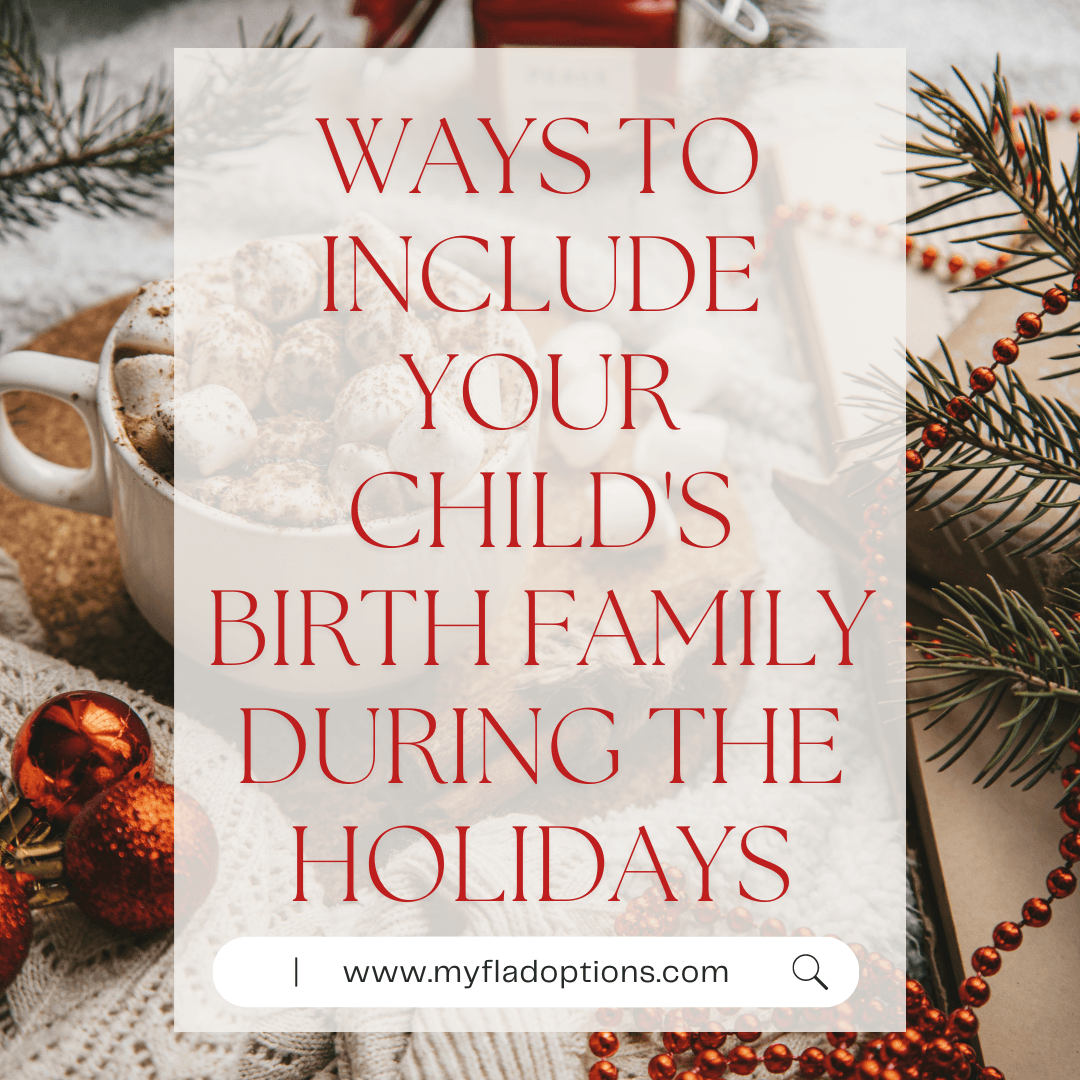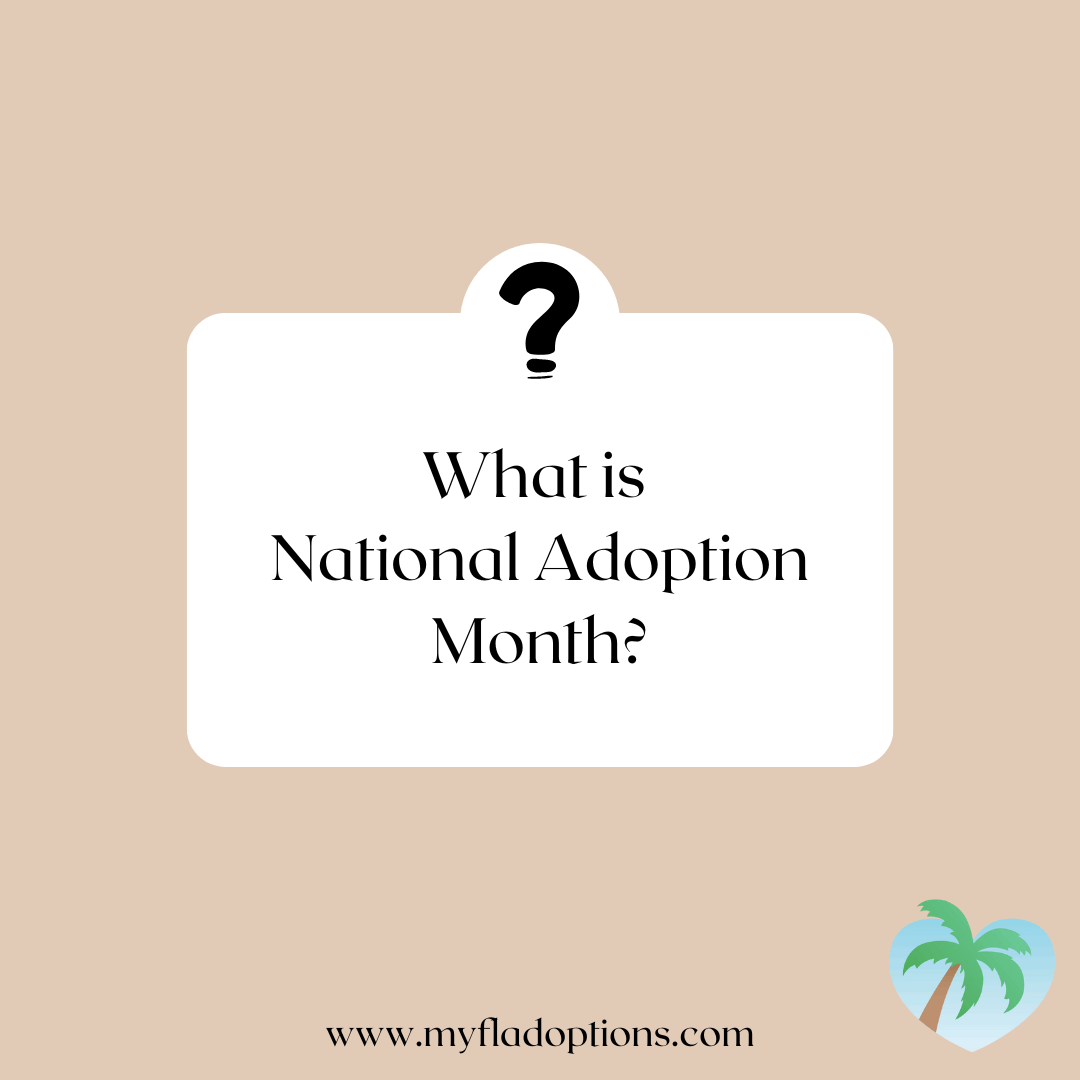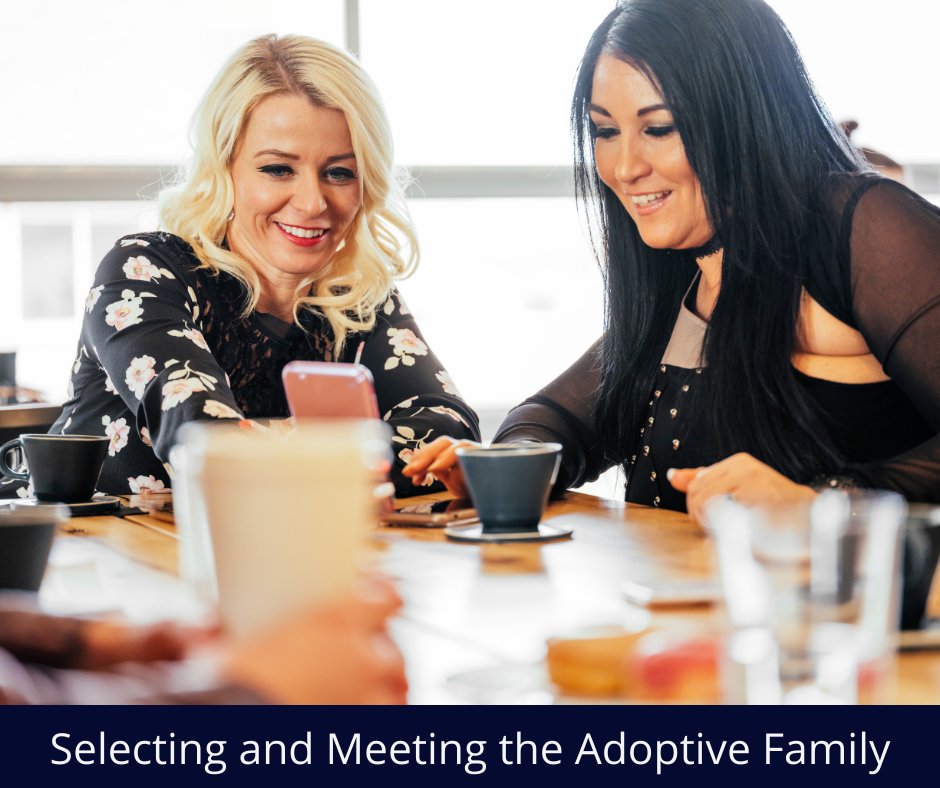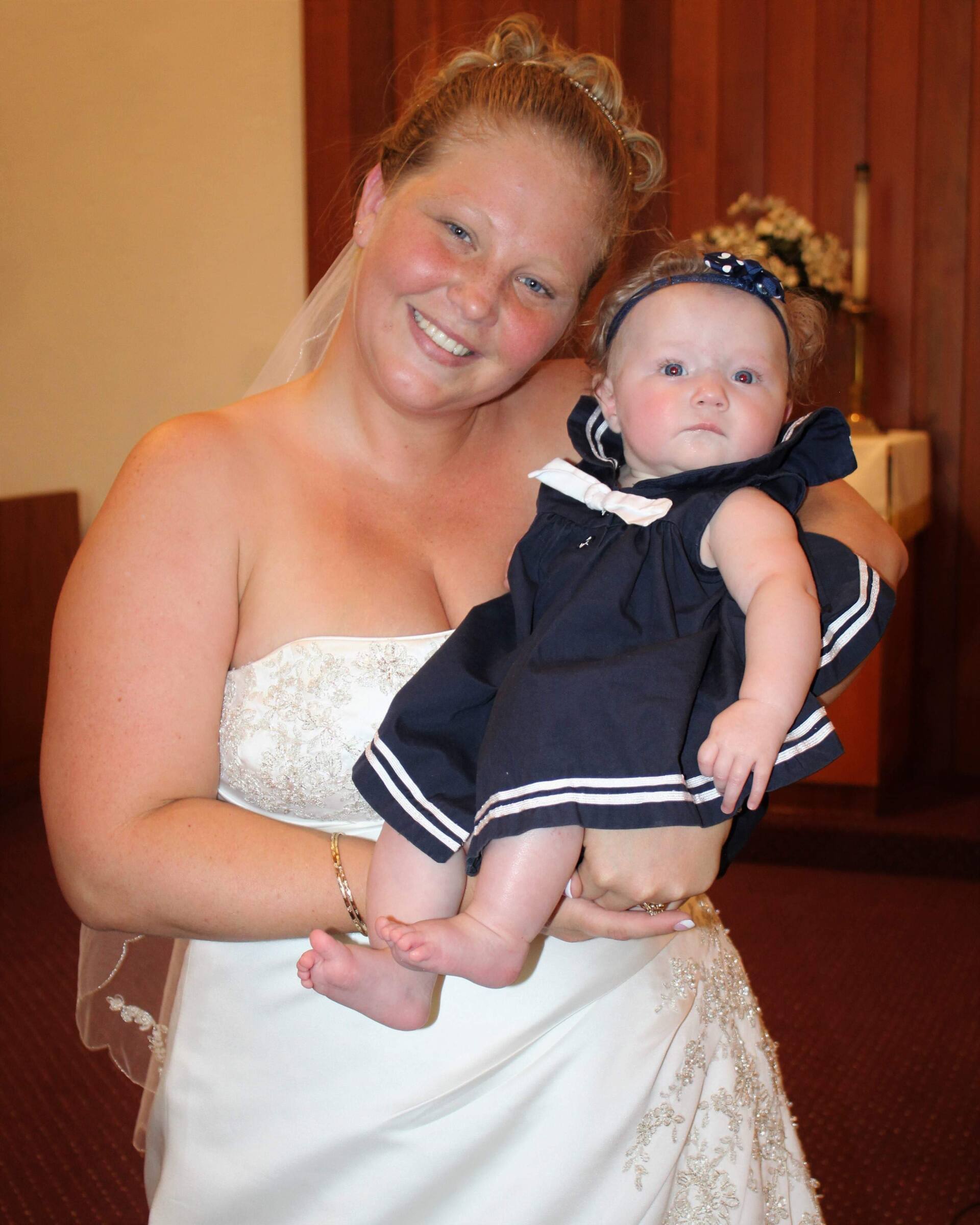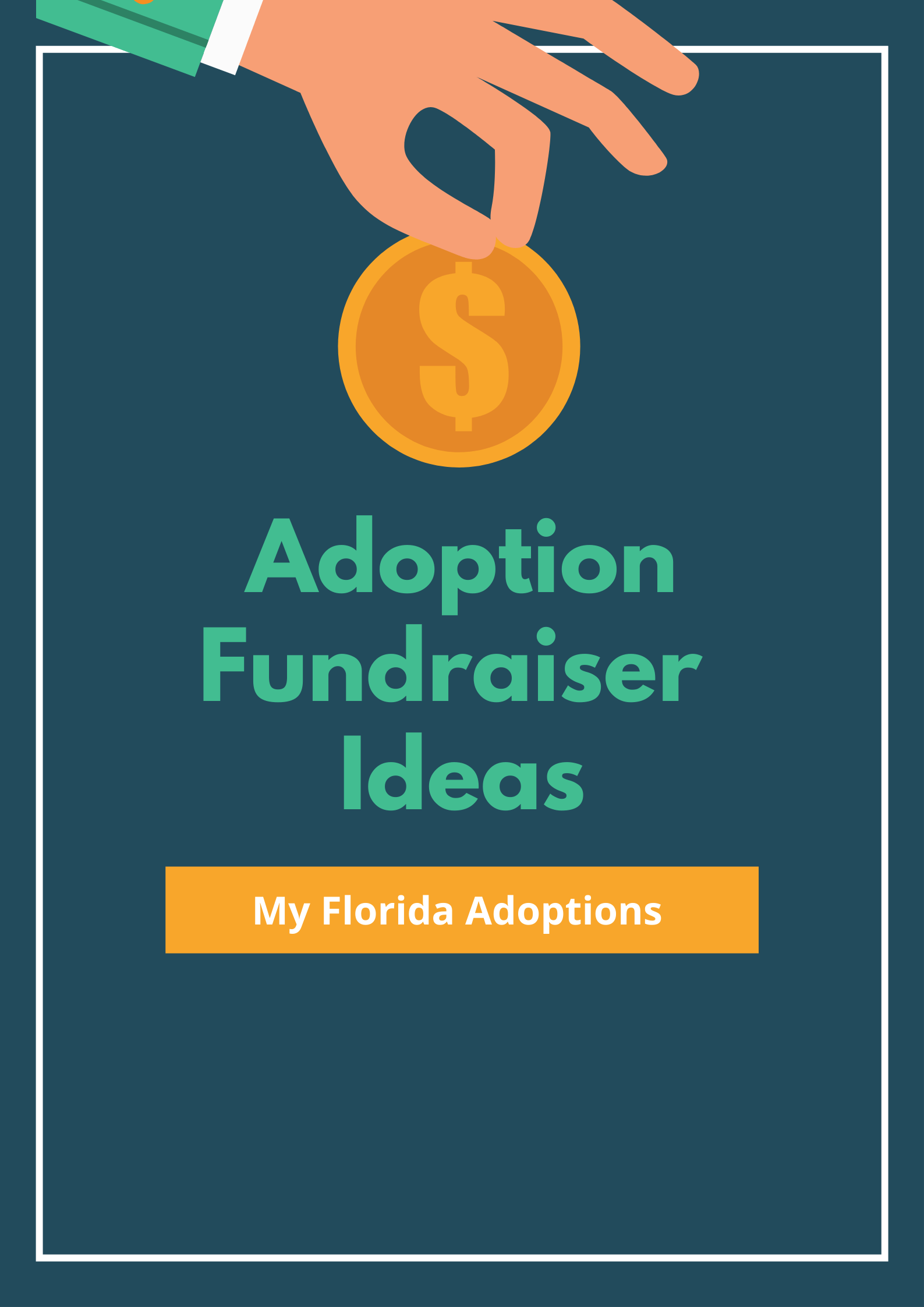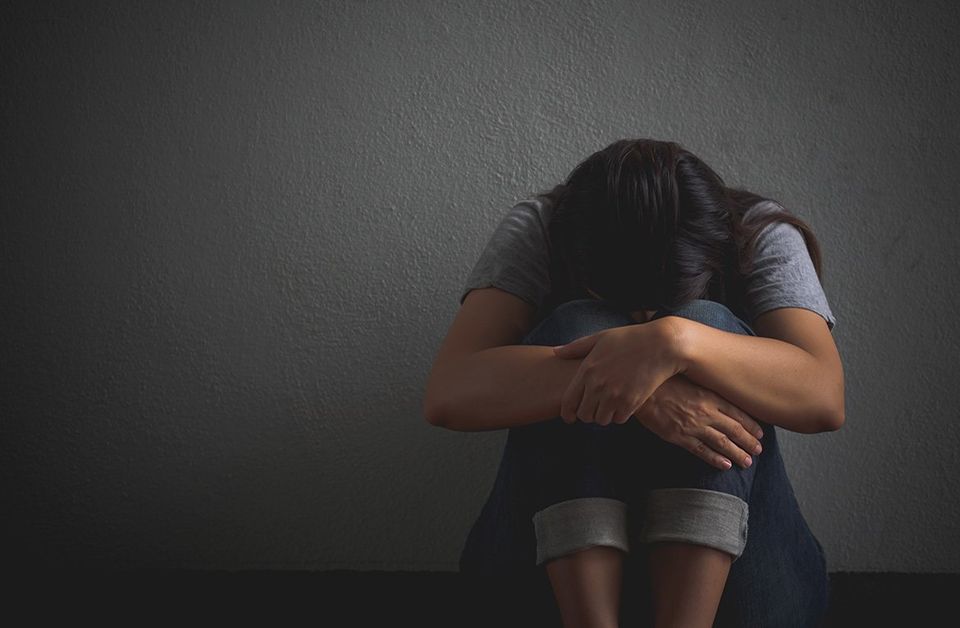
Birth Mother Grief
You spent time deliberating over how to best care for your child in the future. As a result, you chose to make an adoption plan
to give them the brightest future you could possibly imagine even though it was a difficult and painful decision. As the months ticked by, you may have even been excited for your little one to meet their new family. However, most birth mothers are not prepared for the grief that they feel when the loss sets in. Even though you know the baby is going to be safe and well cared for and you know you chose the right family for them, it is still a major loss for you as a birth parent. This means that you will need to work through your grief, just as you would under any other circumstance.
Unfortunately, too many birth mothers are unprepared for the grief that hits them when the adoption is officially finalized. They may not know what to expect or how to handle that feeling of loss in a healthy way. Here are just a few things you should know about the mourning process and how it plays out in your daily life.
Grief doesn’t always mean sadness.
Many people believe that grief can only mean sadness for the child that you lost. However, not everyone experiences grief as a profound sense of sadness. It has the potential to surface as a number of other emotions including denial, anger, worry, anxiety, confusion, shock, embarrassment, and even guilt. This barrage of feelings leads birth mothers to respond uniquely in the days and weeks that follow their adoption and even during their pregnancy.
You may do everything you can to avoid dealing with the situation, pretend it never happened, or wrestle with your decision to place the child for adoption. Some birth mothers berate themselves for even getting pregnant in the first place because they feel so ashamed and embarrassed. On any given day, you might feel all of these emotions at different times or at the same time. Grief is a true rollercoaster for most people, and you must figure out how to address these feelings one by one.
Asking for help doesn’t mean you’re weak.
Most adoption agencies offer post-adoption support for birth mothers
who need it. This may mean one-on-one sessions with a professional therapist or a support group specifically for birth mothers. Asking for access to this sort of help doesn’t make you a weak person. It simply means that you are having a difficult time with this current process and could use some professional help. Take advantage of the support that is available to you in these difficult moments.
If you don’t feel comfortable seeing a professional counselor for your grief, make sure that you are staying connected with supportive family and friends. Spend very little time with people who question or disagree with your decision to create an adoption plan. You need to spend some time talking about what you are going through and those people will not be able to encourage or support you.
If neither of these options appeals to you, you can always search out online help from forums on Birthmom Buds and Life After Placement. Both of these groups are specifically for birth mothers who might be struggling with their decision to place a child or their grief after a placement has been made. This gives you an anonymous and easy way to get the help you need whenever you need it.
Take a break from photos.
Having an open adoption with your child’s adoptive family
can be a wonderful and beautiful thing. Keep in mind that you may need a little bit of space right after the placement occurs so that you can grieve. Try to avoid spending hours sifting through their photos and/or refrain from hanging any of them in your house right now. You need to take plenty of time to breathe and grieve on your own without the constant reminder. By flipping through pictures daily, you are making things harder on yourself. You can always go back through and look at these older pictures in the weeks ahead when you are feeling better. I also heard a profession once advice that one limits their time during the day to reminisce. So maybe you look at photos in the morning for a short time, feel some of the grief, do some of the grief work such as journaling and then go on with the day.
Grief is like the waves of the ocean. A wave of grief comes in and washes over you and you may feel a number of feelings all at once. The wave will go back out and you get a break from the grief. However, something will trigger the grief again like looking at photos, or a certain commercial and then another wave will come in and wash over you. Eventually the waves do not come in as frequently and they are not as intense as they were in the beginning and the do not stay as long.
Find an outlet for your grief.
All of the feelings that you have bottled up inside of you have to go somewhere. You need to find an outlet where you can express your emotions freely without judgment by any individual. Some people have friends who can listen to them vent without judgment, but many birth mothers
do not feel comfortable with this. It can be challenging to find someone who truly understands their unique situation. Whether you feel comfortable or not, you still need to find an outlet for your emotions that allows you to express yourself completely.
Try to come up with a way for you to share your feelings in a private manner, such as in a journal or a sketchbook. This gives you the most freedom of expression for your emotions. Here are a few other things that you might want to try as well:
• Yoga
• Running or taking a long walk
• Making a scrapbook
• Starting an art project
• Finding a song that brings healing or tells your story
Grief is a serious mixture of emotions that you will need to work through before you can find peace with your decision to place a child for adoption. It might look different on different days, but the reality is that you are still struggling with the loss of your child through adoption. Nothing can truly prepare you for the pain of that heartbreaking but necessary decision. Accept that some days might be better than others. It’s possible that you will take one step forward and two steps backward when it comes to healing from your adoption placement. This is all perfectly normal. Cry when you have to and laugh when you can.
The important thing is to reach out for help if you need it. Nobody needs to suffer in silence when there is so much help and support available to you. Reach out online or in person to someone that you know and trust. Expressing your grief can make the difference in your healing process, as it is the way to work through the grief that accompanies an adoption.
Trevor Shirk • April 16, 2020
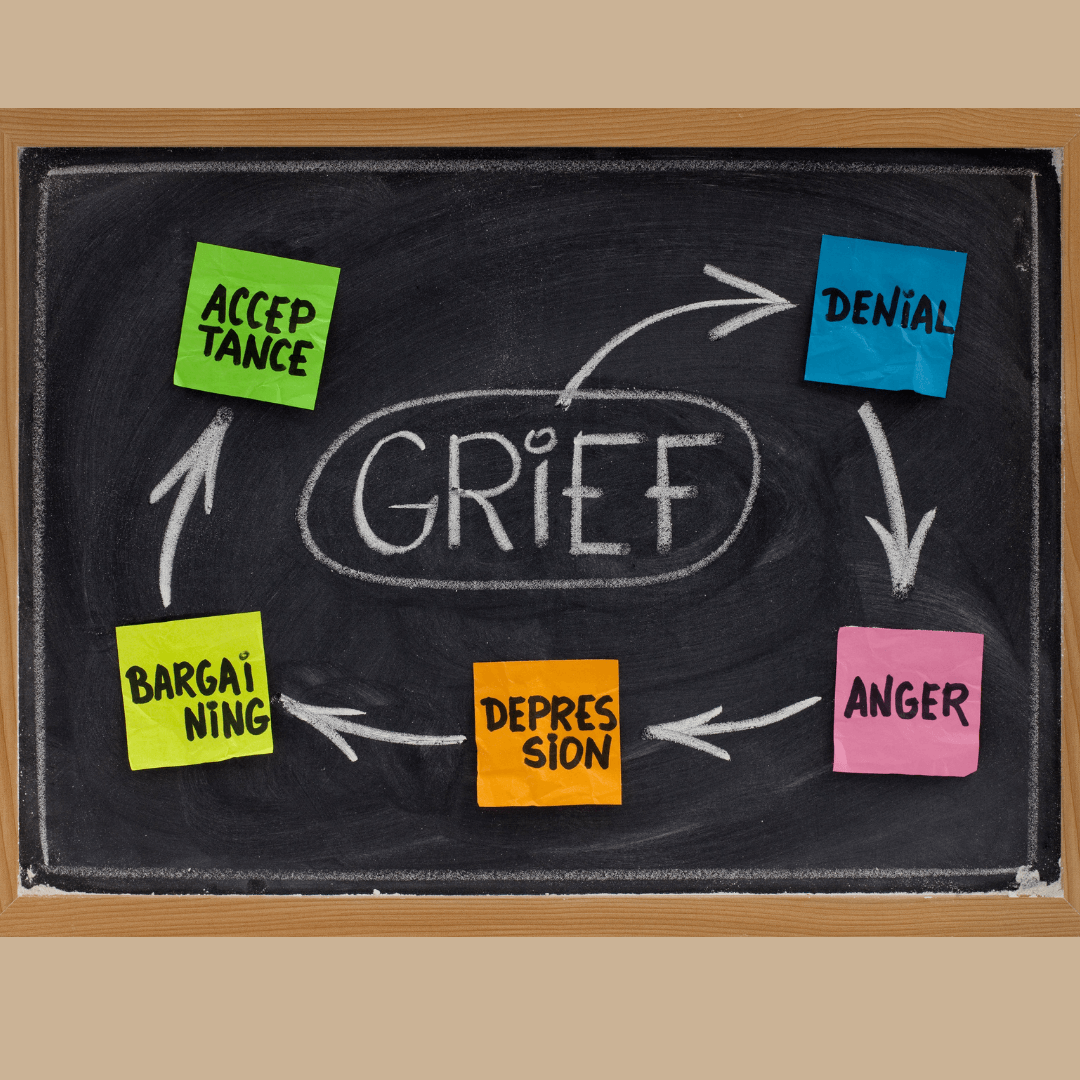
Adoption is a beautiful thing. We have an adoptive family that is overjoyed as their dreams have finally come true and they are able to be parents for the first time. Then there is a brave birth mother who has put the needs of her baby before anything else and because of her love for this child, she makes a mature and selfless decision to place her baby for adoption. While choosing to place your baby for adoption is a brave decision, there is a grieving process that accompanies it. Some birth mothers expect it and know this will be hard and emotional and others may not acknowledge the grief. In 1969, a Swiss Psychiatrist, Elisabeth Kubler-Ross, introduced five stages of grief that people will go through when they experience a loss or change of some kind. During our lifetime, we are going to experience grief many times. It may be the loss of a loved one who dies from cancer. It could be a divorce or broken relationship. It could be a job change or a move. It may be a miscarriage or a still born. The list is endless. Grief is what we go through when we experience a loss or change. Birth mothers who place their baby for adoption also will experience grief. Let's look at the five stages of grief that Dr. Kubler- Ross introduced: Denial - Denial is the initial stage of grief that helps us cope with loss or change. It is a time of avoidance. We avoid the reality of the situation as it may be too overwhelming. It is actually helpful to experience denial as it gives you time to pace our grief. We could not handle the impact of loss all at once; therefore, denial allows us time to avoid it and deny the reality of it until we are ready to process it. The important thing is to be sure you do not get stuck in denial. The best way to process grief is to feel it and express it and tell your story. If you stay in denial and deny or avoid the feelings, you will not be able to process it. The pain will be stuffed inside and at some point it will come forward at a later time of life. Anger- Anger is a common emotion to have once you are out of denial and into reality. This is when one may say “It is not fair” or “Why me”. It is when one needs to blame someone else for their grief. It is important to feel the anger and express it or say it out loud. Eventually the anger will dissipate. For a birth mother, she may be angry at the birth father who left her in this position. She may be angry at her mother who insisted she place for adoption or who withdrew her support from her. She may be angry at the adoption agency that made it sound like rainbows and unicorns and didn’t forewarn her of this grieving process. She may be angry at the adoptive family who are holding and cuddling the baby that she should be holding and cuddling. She may be angry at herself for not being in a better place financially or emotionally. Depression- Depression and sadness is the most commonly accepted stage of grief. It is the emptiness we feel when we are living in reality and realize the person or situation we had is gone or over. It is a time where you may want to isolate and withdraw or stay in bed. This could be accompanied with hopelessness and/or suicidal thoughts. It is important not to get stuck in this stage. Accept therapy and support, even when you do not want to. I had a birth mother say to me once, I don’t want to talk to a therapist and move on, I want my baby back. She was feeling so hopeless. Within three days, she was doing so much better. It was still hard and painful, but she was not completely hopeless. She described it as I am now rational again. She was feeling normal grief. The hard thing for a birth mother is there is a normal grieving process after placing your baby for adoption and then there are hormonal changes going on in your body at the same time. It is like a double whammy. When a birth mother is feeling depression it causes her to question if she did the right thing and if she did, why does it hurt so bad. Bargaining- Bargaining is a stage where we are looking for a chance to stop the grief. You make yourself believe you can avoid the grief with a type of negotiation. Bargaining is many times accompanied by guilt. It is the attempt to get things back to the way it was prior to the loss or change. A birth mother may bargain with God and say, “God, if you will let me get my baby back, I will live right from here on out.” Or negotiating with the adoptive family. An example may be, I can’t do this unless I know I can visit her twice or three times a year. Acceptance- In this stage, one comes to terms with their new reality. The emotions begin to stabilize. You have good days and bad days. But you are moving and growing into your new reality and you have a sense that you will be okay. It is important to let people support you during your time of grief. Counseling and Birth Parent Support Groups are available to birth mothers. Grief is a process and everyone processes it differently. It is important to express your feelings and tell your story to help you process your grief. It is so interesting that when an employer gives you bereavement time off, it is usually three days paid time off. I think that the most intense time is the first three days. You are bouncing from stage to stage and feeling all kinds of emotions. It does not end there; however, you may start to get some breaks from the grief.. Then there will be something that triggers your grief like a movie or a smell and you will experience some of the emotions. But then you will get a break again until the next trigger. Grief is a process and a journey. There is no right or wrong way to grieve. We are all individuals and will grieve at our own pace and in our own way. Don’t judge yourself or let anyone judge you during this time. Be kind to yourself. Find a safe place to tell your story. Here at My Florida Adoptions, counseling is made available to you at any time during your adoption plan and your grieving process. Remember we have offices in Tampa, Port Richey, Orlando and Clearwater. It would be our pleasure to support you throughout your adoption plan.
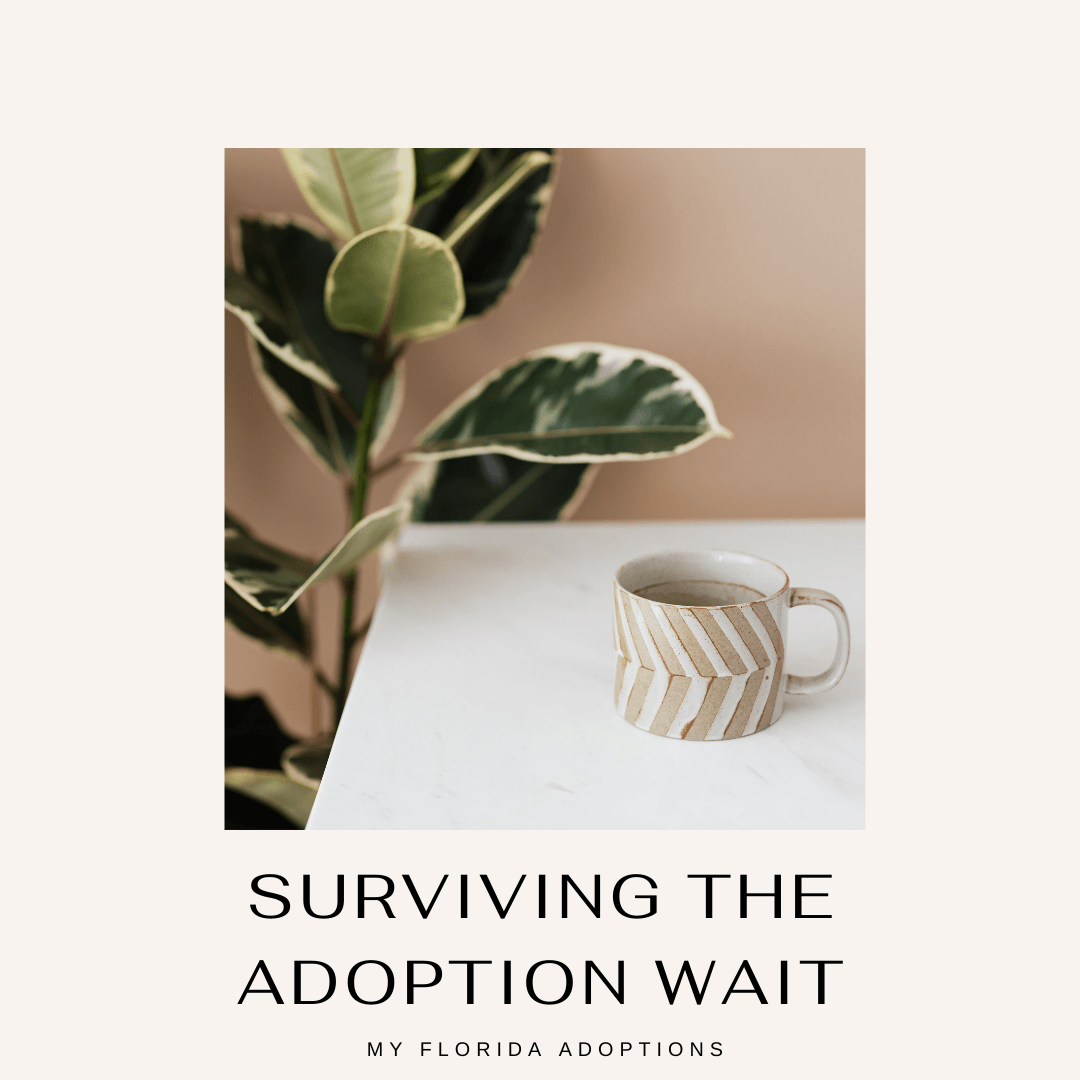
You have selected your agency, attorney or consultant of choice. You survived the Home Study process. You spent hours creating your Profile Book. You are officially “APPROVED to adopt”, so what now? The past few months have been leading up to this moment and you were feverishly filling out forms, scheduling interviews, doctor’s appointments, and pulling all of your creativity into an 8x11 book, and now you are told to simply, “wait.” Excuse me? You have been in fact “waiting” to add a child to your family for what seems like forever already and “now” is when the waiting starts? The true and dreadful answer to that question is “Yes.” However, this time of waiting does not have to be filled with anxiety or checking each day off of that calendar in your kitchen. Here are my “Social Worker Approved” tips for surviving the wait! 1. Realistically prepare for your new addition. DO NOT, and I repeat DO NOT buy clothes, diapers, bottles, specific toys, etc. as that can make the wait seem even more excruciating. Instead, start clearing out that extra bedroom, pick out a gender-neutral wall color (unless you are adopting a child of a specific gender) and paint the walls, pick out a crib or bed. Start looking on Pinterest for different decorating ideas for when the time comes. These are simple ways to prepare, while not adding to your anxiety of waiting. A fallacy of adopting a child is that the baby or child’s room has to be completely done. I always suggest to families to wait and decorate the room once the baby or child is in your home. You will be able to make the room specific to your baby or child, which makes the process much more fun! 2. Work on household projects. Take this time to update that bathroom you felt you never had time for before. Start that garden in your backyard, knock down that wall, or clean out that garage. This is the perfect time to keep busy, while feeling accomplished with projects here and there. 3. Start an adoption journal. Write about this amazing process you have begun. Share your feelings about your hopes, desires, and dreams for your future child. Share your fears about the unexpected and the struggle of waiting. This can be very therapeutic and great to read through again years later, even with your child one day. 4. Start a blog or vlog…if you are into that sort of thing. This can be a great outlet and way for your family and friends to support you throughout your adoption journey. 5. Continue your adoption education. Read books, blogs, etc. about discussing adoption with your child, adoption resources for families, books for children on adoption, and so on. No one will ever know everything there is to know about adoption, so continue your education as you prepare! 6. “Date” your spouse (if applicable). No matter how long you have been waiting and preparing to add a child to your family, your lives are about to change…even if you have children already! Use this time to strengthen your relationship as a couple. Go on dates, a weekend getaway or that cruise you have always wanted to go on. Have no money left after your adoption savings…have a date night in and binge watch some Netflix. If you are adopting as a single parent, then use this time to take that one trip, visit with out of state friends or family, etc. Take time for what is important as you wait! The wait is just another part of your journey to adopt a child. You will look back on this wait one day and think it was completely worth it…trust me, you will! Do you have any tips for families “surviving the wait?” If so, we would love to hear them!

